
India, officially the Republic of India, is a country in South Asia. It is the seventh-largest country by area; the most populous country as of June 2023; and from the time of its independence in 1947, the world's most populous democracy. Bounded by the Indian Ocean on the south, the Arabian Sea on the southwest, and the Bay of Bengal on the southeast, it shares land borders with Pakistan to the west; China, Nepal, and Bhutan to the north; and Bangladesh and Myanmar to the east. In the Indian Ocean, India is in the vicinity of Sri Lanka and the Maldives; its Andaman and Nicobar Islands share a maritime border with Thailand, Myanmar, and Indonesia.

India is the most populous country in the world with one-sixth of the world's population. According to the UN estimates, India has overtaken China in having the largest population in the world with population of 1,425,775,850 at the end of April 2023.
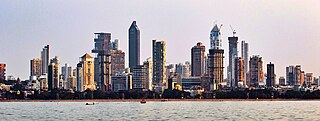
Mumbai — the official name until 1995) is the capital city of the Indian state of Maharashtra. Mumbai is the de facto financial centre and the most populous city of India with an estimated city proper population of 12.5 million (1.25 crore). Mumbai is the centre of the Mumbai Metropolitan Region, the sixth most populous metropolitan area in the world with a population of over 23 million living under the Mumbai Metropolitan Region. Mumbai lies on the Konkan coast on the west coast of India and has a deep natural harbour. In 2008, Mumbai was named an alpha world city.

Mohandas Karamchand Gandhi was an Indian lawyer, anti-colonial nationalist and political ethicist who employed nonviolent resistance to lead the successful campaign for India's independence from British rule. He inspired movements for civil rights and freedom across the world. The honorific Mahātmā, first applied to him in South Africa in 1914, is now used throughout the world.

Maharashtra is a state in the western peninsular region of India occupying a substantial portion of the Deccan Plateau. It is bordered by the Arabian Sea to the west, the Indian states of Karnataka and Goa to the south, Telangana to the southeast and Chhattisgarh to the east, Gujarat and Madhya Pradesh to the north, and the Indian union territory of Dadra and Nagar Haveli and Daman and Diu to the northwest. Maharashtra is the second-most populous state in India and the fourth-most populous country subdivision globally.
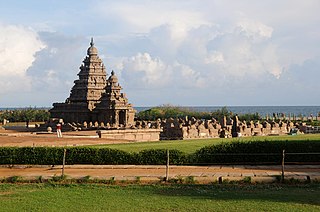
Tamil Nadu is the southernmost state of India. The tenth largest Indian state by area and the sixth largest by population, Tamil Nadu is the home of the Tamil people, whose Tamil language—one of the longest surviving classical languages in the world—is widely spoken in the state and serves as its official language. The capital and largest city is Chennai.

Delhi, officially the National Capital Territory (NCT) of Delhi, is a city and a union territory of India containing New Delhi, the capital of India. Straddling the Yamuna river, primarily its western or right bank, Delhi shares borders with the state of Uttar Pradesh in the east and with the state of Haryana in the remaining directions. The NCT covers an area of 1,484 square kilometres (573 sq mi). According to the 2011 census, Delhi's city proper population was over 11 million, while the NCT's population was about 16.8 million. Delhi's urban agglomeration, which includes the satellite cities Ghaziabad, Faridabad, Gurgaon and Noida in an area known as the National Capital Region (NCR), has an estimated population of over 28 million, making it the largest metropolitan area in India and the second-largest in the world.

Sarvepalli Radhakrishnan was an Indian politician, philosopher and statesman who served as the second president of India from 1962 to 1967. He previously served as the first vice president of India from 1952 to 1962. He was the second ambassador of India to the Soviet Union from 1949 to 1952. He was also the fourth vice-chancellor of Banaras Hindu University from 1939 to 1948 and the second vice-chancellor of Andhra University from 1931 to 1936. Radhakrishnan is considered one of the most influential and distinguished 20th century scholars of comparative religion and philosophy, he held the King George V Chair of Mental and Moral Science at the University of Calcutta from 1921 to 1932 and Spalding Chair of Eastern Religion and Ethics at University of Oxford from 1936 to 1952.

The Indian National Congress (INC), colloquially the Congress Party or simply the Congress, is a political party in India with widespread roots. Founded in 1885, it was the first modern nationalist movement to emerge in the British Empire in Asia and Africa. From the late 19th century, and especially after 1920, under the leadership of Mahatma Gandhi, the Congress became the principal leader of the Indian independence movement. The Congress led India to independence from the United Kingdom, and significantly influenced other anti-colonial nationalist movements in the British Empire.

Shah Rukh Khan, also known by the initialism SRK, is an Indian actor and film producer who works in Hindi films. Referred to in the media as the "Baadshah of Bollywood" and "King Khan", he has appeared in more than 90 films, and earned numerous accolades, including 14 Filmfare Awards. He has been awarded the Padma Shri by the Government of India, as well as the Ordre des Arts et des Lettres and Legion of Honour by the Government of France. Khan has a significant following in Asia and the Indian diaspora worldwide. In terms of audience size and income, several media outlets have described him as one of the most successful film stars in the world. Many of his films thematise Indian national identity and connections with diaspora communities, or gender, racial, social and religious differences and grievances.

India is a federal union comprising 28 states and 8 union territories, with a total of 36 entities. The states and union territories are further subdivided into districts and smaller administrative divisions.

The India men's national cricket team, also known as Team India or the Men in blue, represents India in men's international cricket. It is governed by the Board of Control for Cricket in India (BCCI), and is a Full Member of the International Cricket Council (ICC) with Test, One Day International (ODI) and Twenty20 International (T20I) status. Pakistani cricket tour of India.
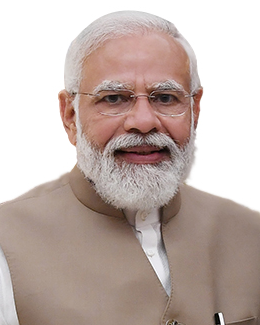
Narendra Damodardas Modi is an Indian politician who has served as the 14th prime minister of India since May 2014. Modi was the Chief Minister of Gujarat from 2001 to 2014 and is the Member of Parliament (MP) for Varanasi. He is a member of the Bharatiya Janata Party (BJP) and of the Rashtriya Swayamsevak Sangh (RSS), a right-wing Hindu nationalist paramilitary volunteer organisation. He is the longest-serving prime minister from outside the Indian National Congress.
The Asia Cup, officially known as the ACC Men’s Asia Cup or ACC Cup is a men's international cricket tournament contested between Asian countries in either One Day International format and Twenty20 International cricket format. It was established in 1983 when the Asian Cricket Council was founded as a measure to promote goodwill between Asian countries. It was originally scheduled to be held every two years. The Asia Cup is the only continental championship in cricket and the winning team becomes the champion of Asia. It alternates every 2-years between ODI and T20 formats.

The India national football team represents India in international football and is governed by the All India Football Federation (AIFF) and is under the global jurisdiction of FIFA. It is governed in Asia by the Asian Football Confederation (AFC) and in South Asia by South Asian Football Federation (SAFF) — both of which were co-founded by the Indian team's supervising body, the AIFF.
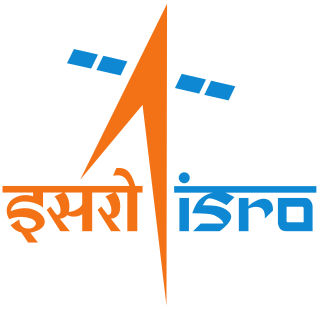
The Indian Space Research Organisation is the national space agency of India. It operates as the primary research and development arm of the Department of Space (DoS), which is directly overseen by the Prime Minister of India, while the Chairman of ISRO also acts as the executive of DoS. ISRO is primarily responsible for performing tasks related to space-based operations, space exploration, international space cooperation and the development of related technologies. ISRO is one of the six government space agencies in the world that possesses full launch capabilities, can deploy cryogenic engines, can launch extraterrestrial missions and operate a large fleet of artificial satellites. ISRO is one of the four government space agencies to have soft landing (uncrewed) capabilities.
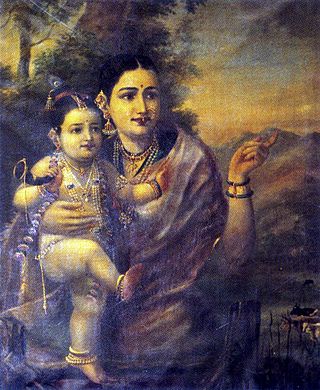
Krishna Janmashtami, also known simply as Krishnashtami,Janmashtami, or Gokulashtami, is an annual Hindu festival that celebrates the birth of Krishna, the eighth avatar of Vishnu. In certain Hindu texts, such as the Gita Govinda, Krishna has been identified as supreme God and the source of all avatars. Krishna's birth is celebrated and observed on the eighth day (Ashtami) of the dark fortnight in Shravana Masa or Bhadrapada Masa. This overlaps with August or September of the Gregorian calendar.

The economy of India has transitioned from a mixed planned economy to a mixed middle-income developing social market economy and largest South Asian economy with notable public sector in strategic sectors. It is the world's fifth-largest economy by nominal GDP and the third-largest by purchasing power parity (PPP). According to the International Monetary Fund (IMF), on a per capita income basis, India ranked 139th by GDP (nominal) and 127th by GDP (PPP). From independence in 1947 until 1991, successive governments followed Soviet model and promoted protectionist economic policies, with extensive Sovietization, state intervention, bureaucrat driven enterprises and economic regulation. This is characterised as dirigism, in the form of the Licence Raj. The end of the Cold War and an acute balance of payments crisis in 1991 led to the adoption of a broad economic liberalisation in India and indicative planning. Since the start of the 21st century, annual average GDP growth has been 6% to 7%. The economy of the Indian subcontinent was the largest in the world for most of recorded history up until the onset of colonialism in early 19th century. India accounts for 7.2% of the global economy in 2022 in PPP terms, and around 3.4% in nominal terms in 2022.

The British Raj was the rule of the British Crown on the Indian subcontinent; it is also called Crown rule in India, or Direct rule in India, and lasted from 1858 to 1947. The region under British control was commonly called India in contemporaneous usage and included areas directly administered by the United Kingdom, which were collectively called British India, and areas ruled by indigenous rulers, but under British paramountcy, called the princely states. The region was sometimes called the Indian Empire, though not officially.
















